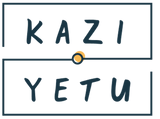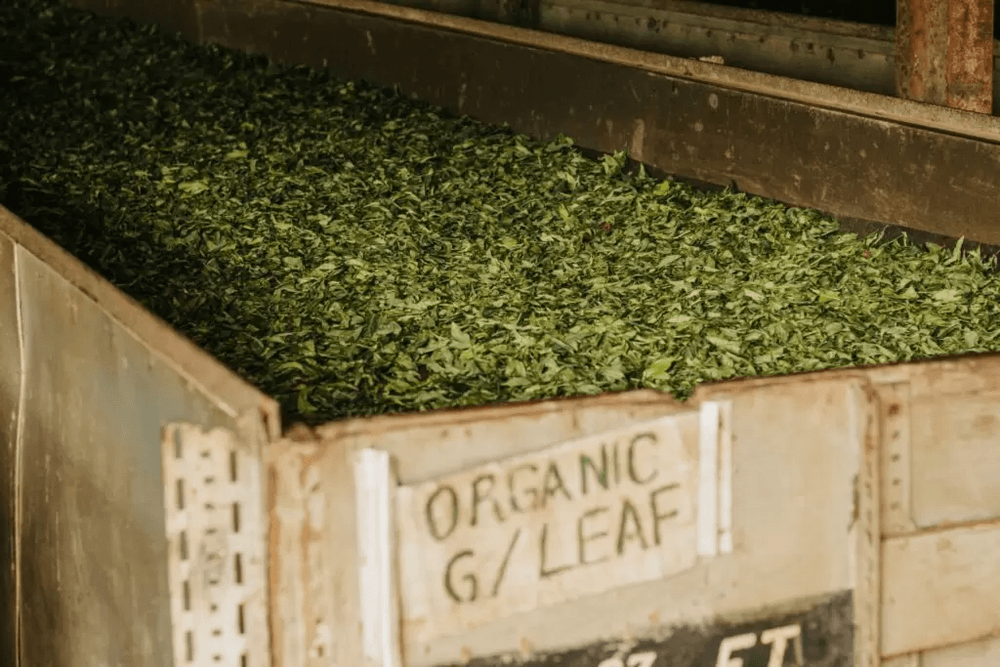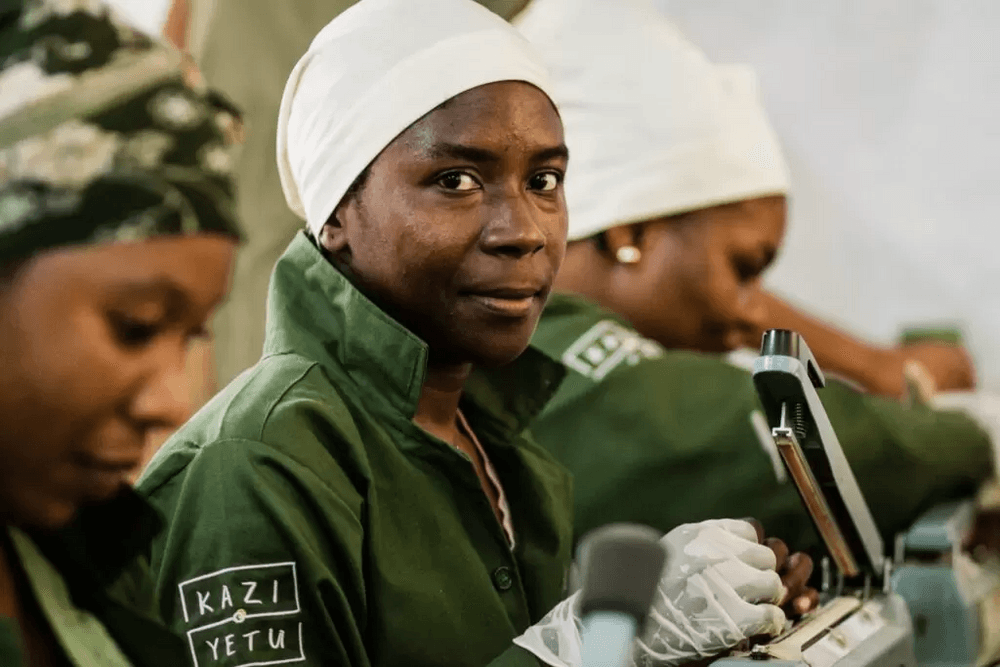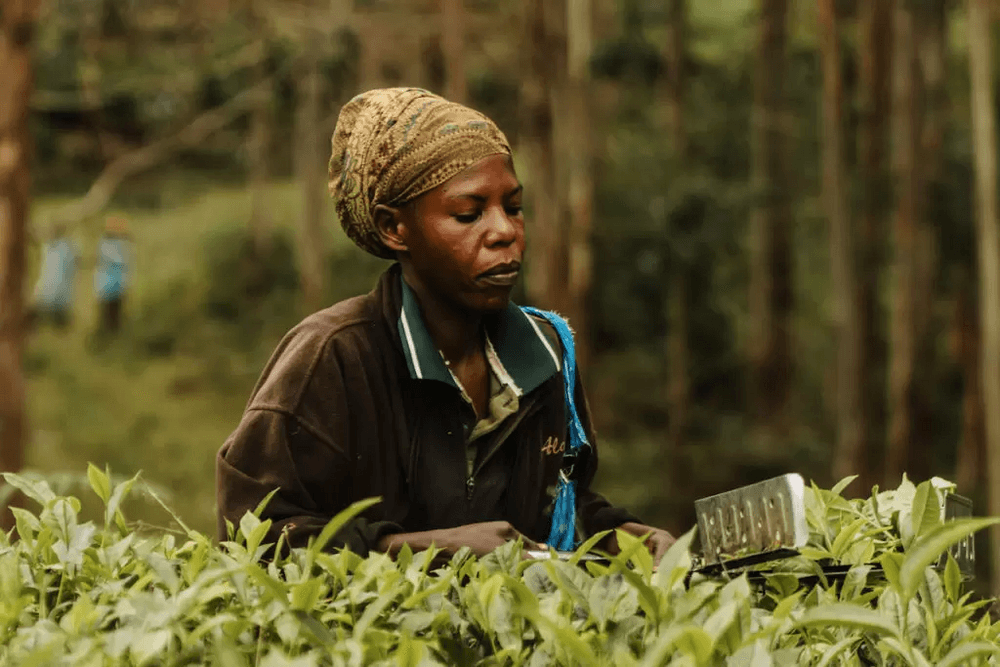Today is World Environment Day, so we wanted to take some time to share one aspect that is important to us: organic production. We will skip the ‘why organic’ and assume that our conscious consumers and readers all appreciate the importance of organic production and consumption and its impact on the environment.
As you may know, Kazi Yetu sources from farmers that follow organic agricultural practices, meaning they don’t use any chemicals (pesticides, fertilizer) when planting, caring for their plants, harvesting, and in post-harvest. We also do not use any chemicals in our tea factory, so the process of blending, packaging, and exporting is based on organic principles.
As a start-up business, we have not yet been organic certified due to scale and cost. Organic certification is a relatively expensive process for farmers, cooperatives, and small businesses like us. But we are so excited to take a leap to pursue the certification!
This week we were so lucky to receive one-one-one coaching on organic production by International Trade Center project,MARK-UP. A trainer that specializes in Voluntary Sustainability Standards walked us through the requirements, checked through our processes and operations, and shared recommendations on how we can ensure that we are certified by the end of this year!

Today we want to share with you our experience so far in preparing to be organic certified, so you get a real-feel, behind-the-scenes understanding of the effort that goes into the little green leaf logo.
Suppliers:
In order to have all our blends organic-certified, all of our suppliers must also be certified. There are 15 types of teas, herbs, and spices that we source from a range of producers around Tanzania. We identified them through the Tanzania Organic Agriculture Movement, which has trained and supported thousands of farmers. We also directly visit each supplier to monitor their fair trade and organic agriculture practices.
While three of our suppliers are organic-certified, the rest are not as they are small, can’t afford it, or don’t need to be certified for their current target market. This means that between now and the time of certification for Kazi Yetu, we need to either support the non-certified farmers to become certified, or find suppliers in Tanzania that are certified and can produce the ingredients we need. We would ideally do the former, but realistically without funding we would likely gravitate towards the latter which would be unfortunate for some of the smallholder farmers that we work with. (Certifying our own factory would include the set-up of a detailed Internal Management System, a pre-audit, the actual audit by an accredited certifier, and the certification fee, as well as an audit and certification fee. Per year, this can range between €5,000 and 7,000 just for our factory, and can go up to €20,000 or more if we include farmers.)
The reality of organic certification means that often smallholder farmers are excluded from a certain international sales market. In turn, farmers who do not have the means to obtain an organic certification cannot benefit from the higher sales prices that come with an organic label and are further left behind. So how we can prevent leaving farmers behind who are following organic agricultural practices to create more value addition at the grassroots, farmer level?

Factory:
Our entire factory – from the floors and walls (literally even the wall paint!) to the ceilings, storage room and the driveway outside – must all be cleaned and maintained with natural inputs and with appropriate signage everywhere.
If we receive any ‘non-organic’ (conventional, or even organic but un-certified) goods, they must be received, processed, stored, and packed completely separately, with documentation to prove it at all stages.
The great news is that the traceability system that we developed, from farm to cup, prepared us well for this process! Every tea that we pack has a batch number, which can be traced back to the date it was packed, who packed it, where it came from, when it was harvested, and who planted it. This helps us with also capturing the organic measures taken throughout our process.
PS. Another certification that we are on our way to achieving is B Corp, which has a comprehensive and holistic check of social, environmental and governance issues related to business’ operations, employees, environmental footprint, customers, and management.
Stay tuned as our journey continues and as we take our next steps towards becoming certified. Follow us on Instagram (@kazi.yetu) and Facebook (@kaziyetu.tz) & sign up for our newsletter below!
Shop our teas here if you are in Europe, or contact us if you want to know where to find our teas in Tanzania, North America, the Middle East, and beyond.




Leave a comment
This site is protected by hCaptcha and the hCaptcha Privacy Policy and Terms of Service apply.